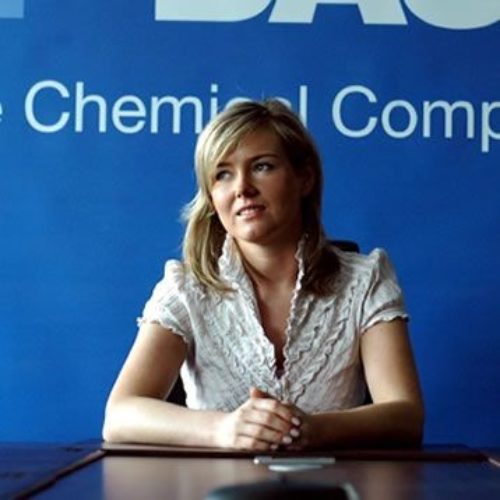Advantageous globalization
With Pace, BASF has launched a project designed to optimize an harmonize the SAP landscape of the entire group. Central coordination responsibility for Pace rests with the Global Competence Center GS, Information Services of BASF Group.
The PACE project team is working on two SAP-Platforms. One for the Global ERP (Enterprise Re-source Planning) System and one for the Business Systems in Ludwigshafen and the other big Euro-pean production plants in Germany (Schwarzheide) and Belgium (Antwerp).
PACE comprises around twenty sub-projects. All these sub-projects contribute to make the historically evolved SAP landscape more consistent. One of the sub-projects of PACE covered migrating processes from SAP in five European BASF business centers (Northern, Western and Central Europe, Spain, Portugal and Italy) into the global ERP System.

‘The objective of the whole PACE project is to facilitate managing SAP system globally and reduce the costs of maintenance and infrastructure development. One of the aims of the migration was also unifying business processes that are now carried out by BASF units, for example in distribution channels management, in controlling and finance’, says Łukasz Badura, Business Center Central Europe Information Manager.
PACE in Central Europe
Business Center for Central Europe was respon-sible for transferring BASF units in the following countries: Austria, the Czech Republic, Poland, Slovakia and Hungary.
In BASF Österreich GmbH, Czech BASF spol. s.r.o., Hungarian BASF Hungária Kft., in BASF Polska sp. z o.o. and in BASF Slovensko spol. s.r.o., the total of over 120 users work on a wide range of SAP functions.
Besides BASF employees and BCC consultants, the participants in the project were SAP specialists from local consulting companies. All the works were managed by common BASF/BCC project management, audited by corporate audit of BASF AG headquarters in Ludwigshafen.

‘Carrying out such a complex IT project that involves a few dozen people from some countries and greatly affects the company’s operations is not a simple matter. The complexity of the project is also caused by different legal regulations in particular countries. In this case the implementation company was responsible for including legal characteristics of all the countries into the target corporate solution. That is why we decided to choose a company with vast experience in SAP corporate solutions. Hence BCC (now All for One Poland) was chosen as a leading BASF partner in Central Europe‘, says Katarzyna Jedynak, Local PACE project manager in Central Europe for BASF.
Tailored methodology
The migration project in Central Europe started in August 2005 and was planned for five months. Its unique character made it necessary to create a specially dedicated project method.
The main assumption of the method was a focus on the project’s security. In the hands of the project’s management the method was to prevent an uncontrolled increase of the project’s scope. The most vital aim was to start working with the new global ERP system on the scheduled date.
In the first stage of the project the roles and responsibilities were divided among the project parties. The division of tasks and duties among BASF employees from particular countries and BCC consultants took into account competences, possibilities and resources that could be poured into the project.
And so at every stage BASF employees took the main part in works connected with logistics (modules: MM – materials management and SD – sales and distribution), while the works in finance and controlling (FI and CO modules) were carried out mostly by BCC consultants.
At this phase also the rules of organizing SAP user support in particular countries during the migration project were set (with consideration for changes/developments of functionalities of the corporate SAP standard, necessary for those countries due to local legal regulations).
Preparation for start
At the second stage the functional scope of migration was defined in detail. The procedures for adding new functionalities were added.
A concept for transferring master data into the new system as well as the concept of entering the opening balance (considering all the indispensable elements) into the productive system was created.
During that stage the quality of the master data scheduled for migration was checked and the data were cleansed. The result was a document correspondent in character to the concept document of implementing SAP in a classic project.
The third stage consisted in carrying out the migra-tion of settings and objects into the global ERP system. Configuration settings were verified and completed by functionalities defined during the second stage.
At the fourth stage of the project the tests of migrated functionalities were prepared, carried out and documented. Also the sets of end user manuals were verified and completed.
To please everyone
How to achieve the aim of the project in the form of unifying the solutions and at the same time ensure adjusting them to local requirements of BASF companies in five countries? This question arises at every project of this type, especially during corporate roll-outs of SAP systems to other countries.
An essential role in ensuring the compliance of the target solution with local legal regulations in the countries covered by the project was played by co-sultants of local consulting companies involved in the migration. They indicated the areas of necessary changes and adjustments.
After verification by the project management and BASF headquarters the changes were introduced.
If the suggested changes resulted from local busi-ness conditions rather than legal requirements, the decision whether to use a local solution or a corpo-rate standard was made by the headquarters. Every suggestion was considered separately in terms of the problem’s importance for a given BASF unit and the consistence of the global system.
Start under pressure
Starting the work with the new system was sched-uled on January 1, 2006. BCC (now All for One Poland) assisted SAP users in particular countries during last preparations to the productive start in their first weeks of working with the new system.
”Our project was a organizational challenge due to a wide scope of migrated functionality and significantly scattered locations. In five Central European countries more than 120 people use the SAP system. We had to ensure that every one of them at a planned moment could use the new solution. An additional difficulty was time limit.
The measure of BASF and BCC common success is the fact that the functionality was transferred to use in due timeand on the first day the employees of BASF Polska issued over 200 sales orders in the system without any problems”, says Katarzyna Jedynak.
After migration
From a global point of view the aims of the project were achieved. The migration helped to centralize SAP system administration for the countries covered. This enables to manage efficiently the SAP corporate environment.
Anna Kłusek, logistics, IT and administration director in BASF Polska, who supervised the project, comments:
”It is good when an IT project can be reflected in profitable changes in business. The larger the organization, the more we should evaluate the advantages in global terms. In BASF migration project the changes are visible not only in the headquarters, but also in units in particular countries”.
Such a tangible manifestation of unifying solutions, visible for employees in their everyday work with the system, is creating and implementing unified forms of printing invoices, sales orders and supply chain documents.
Flexibility is requested
Unification and centralization do not mean stiffness, but clarity of the rules that control the changes in the SAP system. All the changes suggested by units are subject to a unified procedure of verifying and performance.
Dagmar Adamova a participant of migration project in BASF Czech unit, a SAP key user in SD (sales and distribution) area, explains:
“Corporate rules do not exclude unit’s influence on the solution used by this unit of BASF. There always will be cases that need flexibility. For example, one can imagine that our sales strategy in a country requires modification in the policy of granting merchant credit. In this case it would be necessary to introduce changes in settings of clients’ credit limits in the SAP system. The rule is to present and justify the proposals of changes with the competence center of BASF Central Europe".
Such a suggestion of change is first checked by BASF Central Europe. The next step is approving the changes by the so-called gatekeepers from the internal global IT structure. They estimate how the suggested changes will affect the corporate standard and take the final decision whether it is justified to execute them and make them available in the productive system.
Like during the migration, BASF Business Center Central Europe introduces the changes or SAP administrators from BASF headquarters.
A set of instructions on standards in force in the global ERP system clearly states what changes and in what area are to be made by the regional centers and which – by the global organizations.
BASF is the world’s leading chemical company: The Chemical Company. Its portfolio ranges from chemicals, plastics, performance products, agricultural products and fine chemicals to crude oil and natural gas. As a reliable partner to virtually all industries, BASF’s intelligent system solutions and high-value products help its customers to be more successful. BASF develops new technologies and uses them to open up additional market opportunities. It combines economic success with environmental protection and social responsibility, thus contributing to
a better future. More information: www.basf.com


